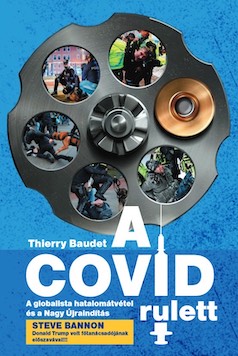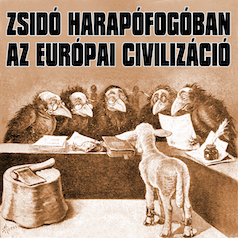Oh joy!
As a Hungarian expat having seen it performed wherever a government was corrupt and committed enough to descending to even such lows, there is nothing more heart warming, vomit inducing and desperately wishing for not Hungarian but just human sobering, than it was by witnessing the "Hungarian" government's invitation of a despicable crook, world-class confidence trickster, Elie Weasel to teach us about humanity.
Elie Weasel.
His nick stuck over the years in America, because this individual is the perfect embodiment of the animal "weasel" * whose name derive from the character of spinelesness, one seeking unjust revenge and avoidance of well deserved justice for his manipulations and crimes.
This is where we stooped to Hungary. To Elie Weasel.
Elie Weasel visited us.
Judapest, I hope you are happy.
Elie Weasel.
His nick stuck over the years in America, because this individual is the perfect embodiment of the animal "weasel" * whose name derive from the character of spinelesness, one seeking unjust revenge and avoidance of well deserved justice for his manipulations and crimes.
This is where we stooped to Hungary. To Elie Weasel.
Elie Weasel visited us.
Judapest, I hope you are happy.
Béla Varga (California)
*In English-language popular culture, the term "weasel" commonly is associated with devious or treacherous characters. Many of these references tend to treat weasels as a species rather than a genus; for example, in Brian Jacques' Redwall series, weasels are one of many villainous races, along with rats and ferrets—although ferrets, biologically speaking, are a species of weasel. In reference to the weasel's reputation for skullduggery, the phrase "weasel words" means insincere or devious speech. Elements of the U.S. media described the declaration by France, Germany, and Belgium against the 2003 planned overthrow of Saddam Hussein's Iraq government as "The Axis Of Weasel," a pun on the "Axis of Evil." A popular cynical office poster states, "Eagles may soar, but weasels don't get sucked into jet engines," meaning that office workers who stay low and act in their own self-interest may be less likely to rise in the organization but are also less likely to be destroyed as a result of office politics.
British popular-culture references to weasels are generally specifically to the common or least weasel. For example, Alan Lloyd's novel Kine, about a fictional war in the English countryside between weasels and the invasive species mink, depicts the latter as sadistic, voracious invaders, giants in comparison to the weasels; in American usage, both species would be kinds of weasel. Similarly, in Kenneth Grahame's popular story The Wind in the Willows the villains are the weasels and the stoats, again two species of weasel in American usage. Here everyday usage reflects the original European use of the word weasel for a single species.
A kamaitachi is, according to Japanese myth, a malevolent, weasel-like wind spirit, wielding a sharp sickle. They are nearly always depicted in groups of three individuals, and the three act together in their attacks; the first one hits the victim so that he/she falls to the ground, the second slashes with the sickle, and the third partially heals the wound. Also in Japanese mythology, weasels represent bad luck and death.











